Shoreham air crash trial: G-force 'may have impaired pilot'
- Published
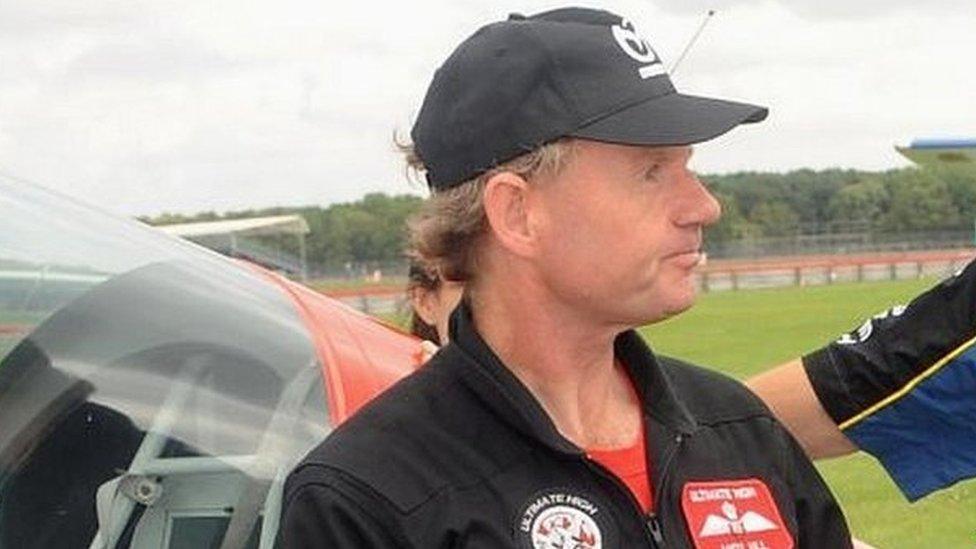
Pilot Andrew Hill denies 11 counts of manslaughter by gross negligence
A doctor has told a jury there is a "significant possibility" that pilot Andrew Hill was experiencing "cognitive impairment" when his plane crashed and killed 11 men at Shoreham Airshow.
Dr Henry Lupa, who has advised the RAF and Nasa on the effects of G-force, told the Old Bailey Mr Hill may have suffered a lack of oxygen.
The defence witness said this may have impaired Mr Hill's decision making.
Mr Hill, 54, denies 11 counts of manslaughter by gross negligence.
The 1950s Hawker Hunter he was flying crashed on to the A27 in Sussex and exploded on 22 August 2015.
Dr Lupa also told the court the plane's glass cockpit was "like a greenhouse" on the warm summer's day and the temperature inside "could be a factor".
He wrote a report for the defence that concluded the level of G-force experienced by Mr Hill during his display may have led to cognitive impairment caused by cerebral hypoxia, the court heard.
"If cognitive impairment did occur the most likely effect would be an impairment of judgement and decision making," he said.
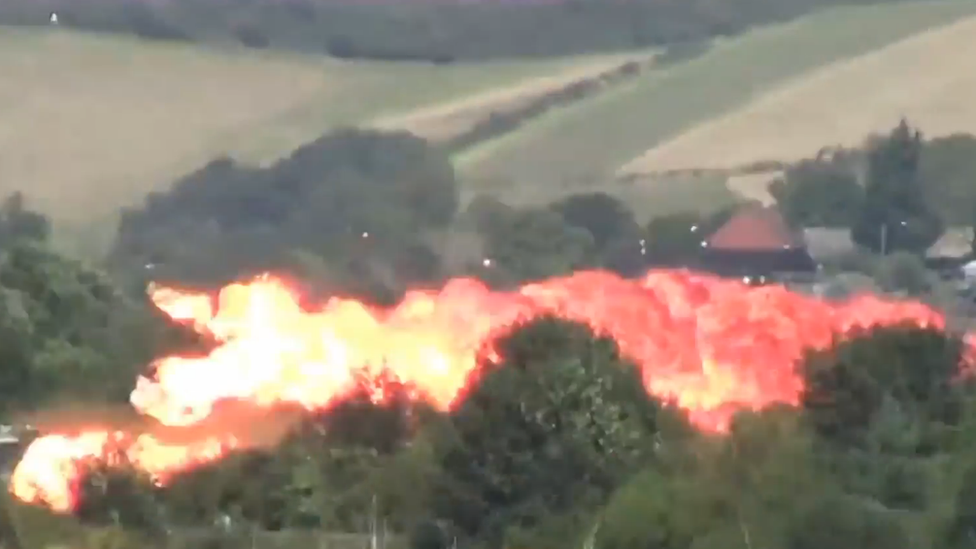
Andrew Hill was thrown from the cockpit of the Hawker Hunter after it crashed
The prosecution allege Mr Hill committed to a manoeuvre despite flying too low and too slow.
Defence counsel Karim Khalil QC earlier argued Mr Hill was cognitively impaired and "unable to properly and fully control the aircraft".
'A credible explanation'
Dr Lupa said it was "difficult to conceive" why a pilot would deliberately choose to do a manoeuvre known to be dangerous at low altitude unless a "serious misjudgement occurred".
"It's unknown if cognitive impairment may have occurred because of cerebral hypoxia but it is a credible explanation," he told the court.
Dr Lupa said there was no evidence Mr Hill suffered a loss of consciousness, known as G-loc, or a lesser condition known as A-loc, where "the lights are on but nobody's home".
However, he told the court that "measurable hypoxia can occur at levels significantly below those that can cause G-loc or A-loc".
He said it would be difficult to observe the impacts of cognitive impairment.
"Maybe a parallel is if you are in a car with someone who has had a few drinks of alcohol," he said.
"You might not necessarily be aware their driving might not be what it ought to be."
The court heard temperatures at North Weald Airport, where the Hawker Hunter had flown from on the day of crash, reached 29C.
Dr Lupa said the high temperature "could be a factor" as "an increase in body core temperature reduces G tolerance".
The trial continues.
- Published18 February 2019

- Published15 February 2019
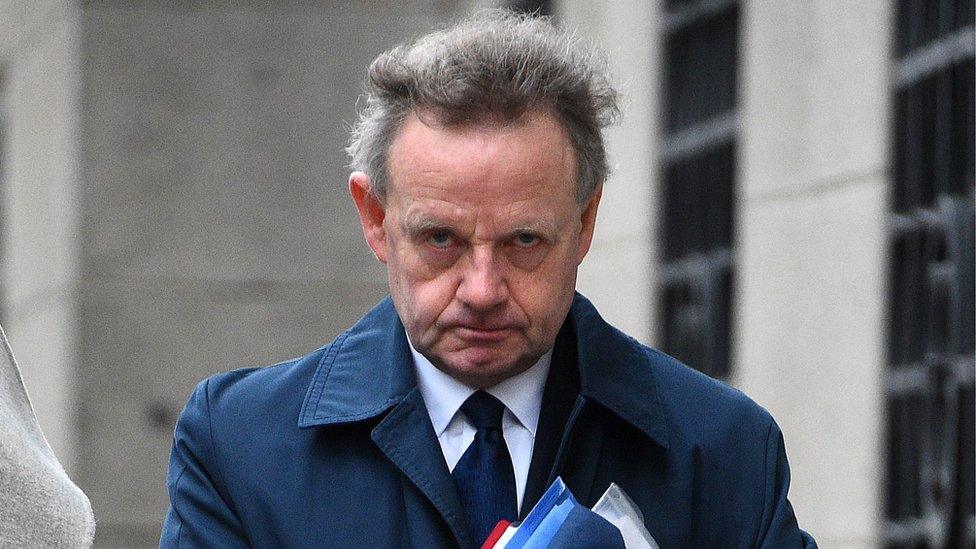
- Published14 February 2019

- Published13 February 2019
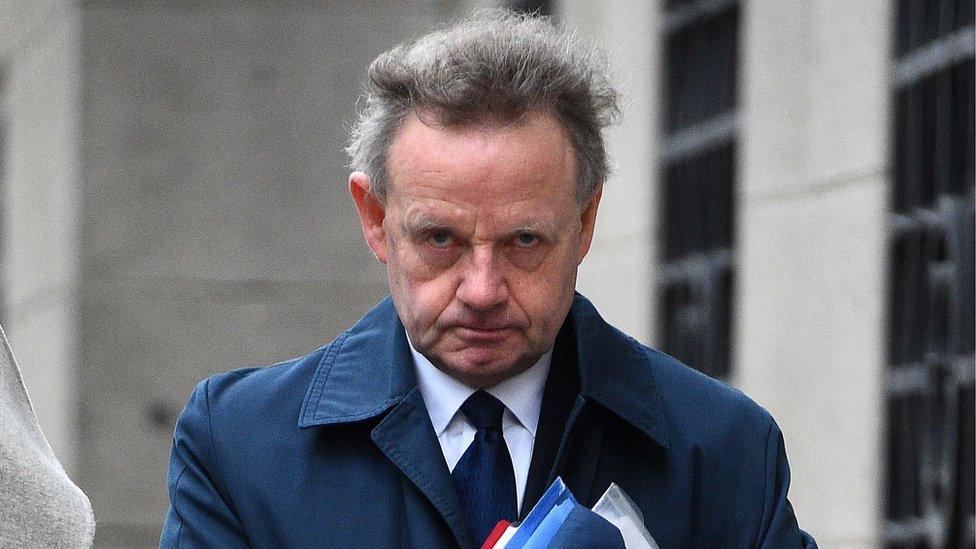
- Published7 February 2019
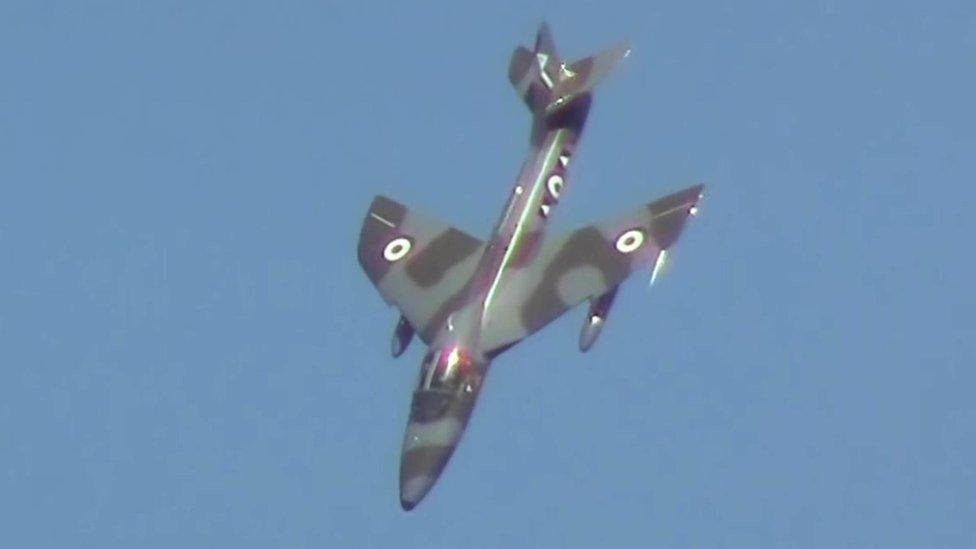
- Published6 February 2019

- Published11 February 2019
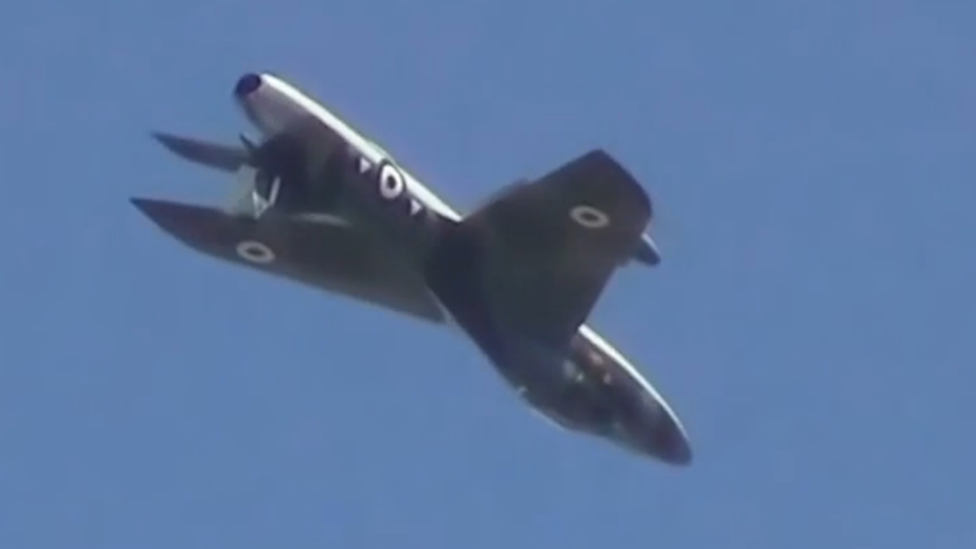
- Published8 February 2019
